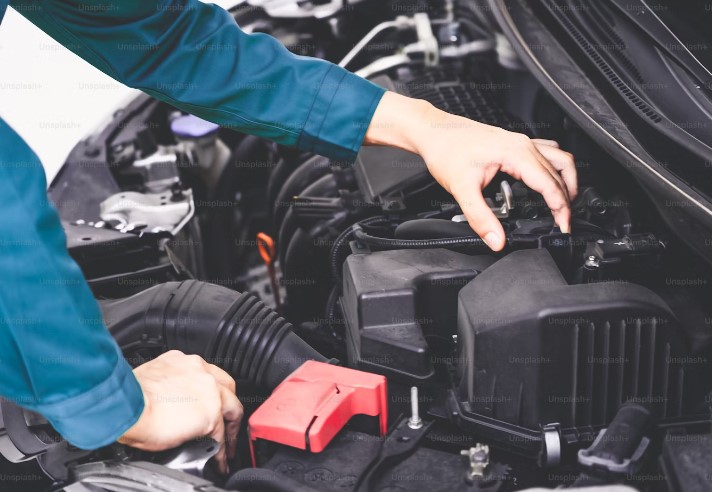By continuing to check the level of oil and other fluids regularly, you can maintain the health of your car engine and avoid problems caused by a lack of oil or other fluids.
To check the oil level and other fluids in the car, you can follow these steps :
- Check the car engine when it is cold: Make sure the engine is cold before starting the check to avoid burning yourself.
- Checking the oil level: Open the hood and use the dipstick to check the oil level. The level should be between the low and high marks on the dipstick.
- Check the level of other fluids: Check the level of other fluids such as coolant, brake fluid, and transmission fluids if the vehicle uses a manual transmission system. Make sure the level matches the level recommended in the owner's manual.
- Make any additions: If any of the fluid levels are low, add the appropriate amount of the appropriate fluid according to the vehicle manufacturer's directions.
- Close the hood: Once the inspection and necessary additions are completed, close the hood tightly.
- The importance of changing the oil regularly for the health of your new car engine ?
Regular oil changes are critical to the health of your new car's engine for several reasons :
- Engine lubrication: Oil lubricates the engine and reduces friction between moving parts, keeping the engine safe and preventing wear.
- Engine Cooling: Oil also cools the engine by transferring heat away from hot parts, which helps prevent the engine from overheating.
- Engine cleaning: The oil contains cleaning materials that help remove impurities and deposits from inside the engine, which keeps the parts clean and improves engine performance.
- Internal parts protection: The oil provides protection for internal parts from wear and tear, enhancing engine life and reducing the chance of mechanical problems.
By changing the oil regularly according to the vehicle manufacturer's recommended schedule, you can maintain the health and performance of your new car's engine and avoid unnecessary repair costs in the future.
The effect of changing air and oil filters on the performance of the car engine
Changing the air and oil filters regularly greatly affects the performance of the car engine as follows :
- air filter :
The air filter purifies the air entering the car engine from impurities and dust.
When the air filter is clean, the engine can receive enough fresh air, which improves fuel combustion and increases engine efficiency.
A clean air filter reduces fuel consumption and increases engine power and responsiveness.
- Oil filter :
The oil filter purifies the oil and removes impurities and deposits from it.
When the oil filter is clean, it maintains the cleanliness and quality of the oil, which helps protect the engine from wear and tear.
Changing the oil filter regularly contributes to maintaining engine performance and increasing its operational life.
Of course, changing the air and oil filters regularly is an essential part of engine maintenance, and can contribute significantly to improving its performance and saving time and money in the long run.
Of course, changing the air and oil filters regularly is an essential part of engine maintenance, and can contribute significantly to improving its performance and saving time and money in the long run.
What are the bad habits that affect the health of a new car’s engine?
Here are some bad habits to avoid to maintain the health of your new car's engine :
- Not changing the oil regularly: Not changing the oil regularly can lead to the accumulation of impurities and deposits inside the engine, causing corrosion and shortening the life of the engine.
- Driving at high speeds before the engine warms up: Driving a car at high speeds before the engine has fully warmed up puts excessive stress on the engine and leads to excessive wear.
- Driving after a call: Frequently driving a vehicle after a call or when the engine is cold can cause engine wear due to lack of lubrication.
- Not checking the level of other fluids: Not checking the level of other fluids such as coolant and brake fluid can lead to serious operational problems for the vehicle.
- Exceeding the maximum towing and load capacity: Exceeding the maximum allowable towing and load capacity can put excessive stress on the engine and other parts of the vehicle.
By avoiding these bad habits, you can maintain the health of your new car's engine and reduce the chances of mechanical problems in the future.




1 Comments
thx
ReplyDelete